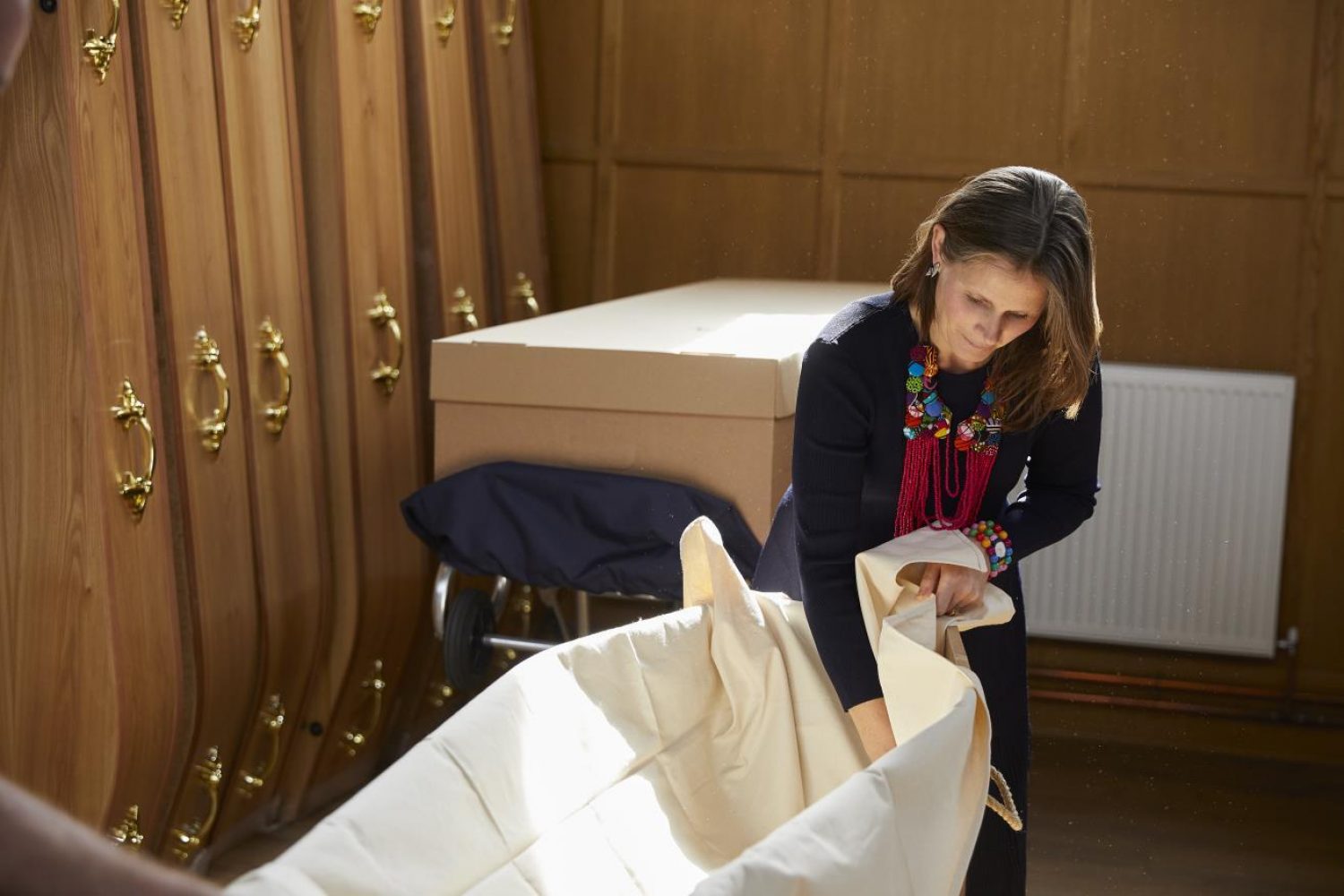Would you choose to be embalmed? There’s no right or wrong answer, but it’s certainly worth considering. That’s because roughly half of us will be embalmed, even though there’s no legal or hygienic reason why we should be.
Here’s what embalming really involves and why we prefer a natural approach.
Planning a funeral? Find out more about Poppy's and our natural approach to death care
What exactly is embalming?
Embalming isn’t something that gets talked about often, which means that it’s not always clear what really takes place. Embalming replaces all of the body’s natural fluids with a preservative liquid, which includes pink dye and usually formaldehyde. Embalmers also use stitches to close someone’s jaw, and spiked eye-caps to keep the eyelids shut.
Alternatively, there’s a partial embalming procedure called ‘a facial,’ where the jaw is sutured and eye-caps inserted, but no chemicals are used. In both cases, embalming is quite invasive and usually doesn’t serve any practical purpose.
Unfortunately, embalming isn’t wonderful for the environment because of the chemicals it uses. There’s evidence that suggests they might affect our groundwater sources and the surrounding land.
Although a growing number of people are hoping for an eco-friendly funeral, there hasn’t been any rapid decline in embalming rates — and it’s time to ask why.
Embalming shouldn’t be the default option
In the UK, embalming hasn’t always been this common. But we’ve got used to death being hidden away and controlled by gatekeepers like funeral directors, who aren’t always transparent about the choices you have.
At Poppy’s, we believe this is something that needs to change. Too many funeral directors still treat embalming as the default option and disguise what happens by calling it ‘hygienic treatment.’ Embalming can be important to some families, and may be absolutely right for them — the issue is that it may not be presented clearly and as a personal choice.
But embalming is entirely unnecessary for any hygienic or legal reasons. In fact, the only time there’s a legal requirement to embalm is when someone who has died is being repatriated. So how is it that embalming has become such an entrenched part of funerals?
In part, it’s because embalming can be convenient for some funeral directors. Large companies have smaller local branches, which often don’t have any refrigeration. Instead, there will be a large central hub where people who have died are kept cool.
These central hubs can be far away, which is a problem when someone isn’t embalmed and needs to be transported back to the local branch — where they’ll need to stay long enough for friends and family to visit.
Ideally, embalming should be chosen freely by someone who knows exactly what it will involve. But in reality, embalming often happens because it benefits funeral companies rather than the person who has died or their family.
Planning a funeral? Find out what choices are available and the likely costs.
What to expect from a more natural approach
The point of embalming is to delay any physical changes to the body, and ‘freshen up’ someone’s appearance. But the outcome of embalming is really variable, and often leads to changes that people find unnatural. It can also make it harder to say goodbye to someone when they look very different from the last time you saw them — which is a common outcome of embalming.
A natural approach doesn't use chemicals, stitching, or any of the invasive procedures that are part of embalming. At Poppy’s, we will gently wash someone, as well as apply Vaseline to their lips to keep them moisturised. We’re led by what friends and families want, which could involve things like doing their makeup or giving them a shave.
It’s absolutely possible to spend time visiting someone or have an open coffin at the funeral when the person hasn’t been embalmed. We’ve done this many times and the person will be just as well cared for and should look peaceful.
A natural approach: reclaiming our bodies in death
It’s still uncommon for people to express their wishes when it comes to their own dead body. But why shouldn’t we take ownership over our bodies in death, just like we do in life? Having a conversation about embalming means that you can really consider what options exist.
Lots of people are nervous about not embalming because they aren’t sure what the alternative is. This is because death has been placed firmly behind closed doors for far too long. But it’s our body that will need to be cared for, and what that involves is part of our legacy.
A gentle natural approach focuses on the humanity of the person who has died by treating them with kindness and dignity. In our experience, people will generally choose a natural approach when they’re given the option. We just need to make sure that funeral directors help to make this happen.
Looking for more empowering ideas about death care? Here's how to care for someone who has died at home and how to plan an eco-friendly funeral.
P.S. Google tells us that this is our most popular blog. If you'd like to read more great blogs from Poppy's, including inspiring ideas, useful advice, real-life stories and interviews from the front lines of death care, we'd love to keep in touch. Sign up for our email updates or contact us if you need help planning a funeral.
